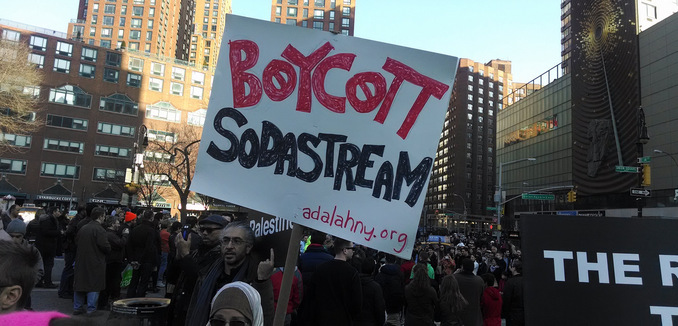The campaign led by the American Civil Liberties Union (ACLU) and others against state laws combatting boycotts of Israel is marked by “misinformation and bad legal analysis,” George Mason University Law School Prof. David Bernstein wrote at the Reason website Sunday.
In the first of two posts on the topic, Bernstein dismisses several fallacious descriptions of the laws that bar states from contracting with entities that boycott Israel that have been raised by critics.
Contractors, Bernstein explained, must assure states that they are not boycotting Israel; they do not have to pledge loyalty to Israel as one critic of the state laws asserted. The laws barring states from those engaged in the anti-Israel Boycott, Divestment, and Sanctions (BDS) applies to businesses but not individuals. Also, the laws are designed not specifically to protect Israel, but rather organizations such as Israeli universities.
More generally, Bernstein wrote, boycotts, according to the courts, are considered to be economic activities and not protected free speech in three distinct ways.
First of all, the Supreme Court has held that secondary boycotts are not protected speech. Secondly, Bernstein explained that a boycott is a “refusal to deal,” which the courts do not consider to be protected. Finally, a district court has ruled that urging a boycott is protected speech, not the boycott itself.
The Supreme Court, in Rumsfeld vs. FAIR — the case that most closely resembles the anti-BDS laws — unanimously held that boycotts are not protect speech.
In the second part of his analysis, Bernstein looked at related issues.
Having state laws that govern foreign policy are not new, he wrote. Bernstein noted that in the 1980s states passed laws barring contractors from dealing with South Africa. While those laws “had the opposite intent,” Bernstein wrote, “there is longstanding precedent that states may condition contracts on how and whether contractors react to boycott movements.”
Another point he made is that laws banning boycotts of Israel have been around since the 1970s. In fact, Bernstein’s George Mason colleague, Eugene Kontrovich, has argued that the current anti-BDS state laws are simply updates of the 1970s laws prohibiting states from engaging in the Arab boycott of Israel.
Finally, Bernstein argued that there’s a reasonable financial reason to disallow boycotts of Israel. Many Israeli products and services are the best for the required tasks. Boycotting Israel could end up costing states money or forcing them to use inferior products.
[Photo: The All-Nite Images / Flickr ]




